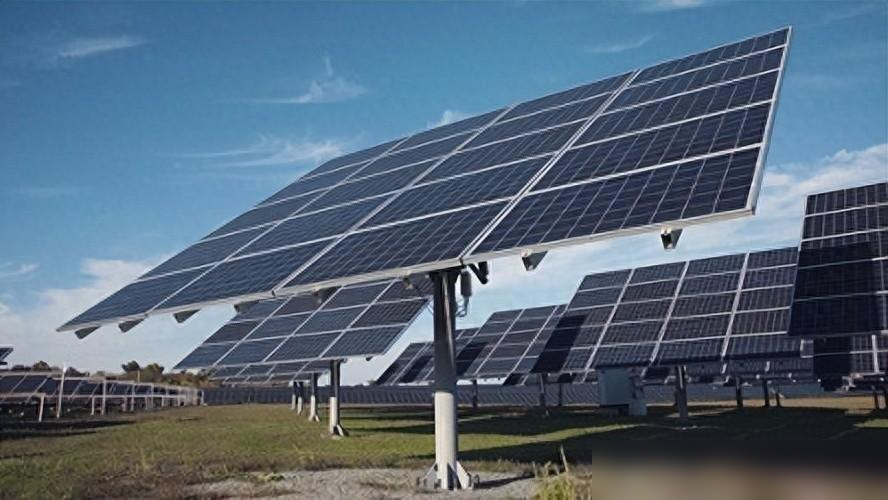China is the world leader in photovoltaic power generation, but how are discarded photovoltaic panels handled?
- CosDream News

- Jun 28, 2024
- 3 min read
The solar photovoltaic (PV) industry in China has achieved remarkable accomplishments in recent years.
Data shows that as of 2019, China's solar PV capacity reached a staggering 205 GW, maintaining its position as the world's number one for seven consecutive years.
However, behind these achievements lies an increasingly serious issue—the daunting task of dealing with a large number of retired solar panels.
It is estimated that by 2021, China will face the first wave of solar panel retirements, bringing about a massive amount of discarded solar panels.
Effectively managing this has become an urgent environmental and economic issue.
The generation of solar waste stems mainly from two pressures.
Firstly, China's enormous installed capacity in solar PV generation dominates the global landscape.
According to data from the National Energy Administration, by 2023, China's installed capacity has exceeded 300 GW, continuing to maintain its global lead.
This implies that in the future, a large number of solar panels will be phased out due to aging, damage, or technological obsolescence, becoming a significant source of solar waste.
Secondly, rapid advancements in solar technology and market competition have led to the continuous emergence of new types of solar products.
These new products, with higher conversion efficiencies and lower costs, gradually replace old products, accelerating the turnover of solar panels and further exacerbating the generation of solar waste.
The recycling of solar panels faces multiple challenges.
Firstly, there is a lack of policies and insufficient regulation.
Despite the Chinese government's introduction of a series of policies and regulations on environmental protection and resource utilization, a complete legal framework and mandatory recycling system for solar panel recycling have yet to be established.
The absence of mandatory policies and clear recycling standards has led to slow development in the solar panel recycling market and low recycling rates.
Secondly, economic considerations play a role. Solar panels are mainly composed of materials such as silicon, aluminum, glass, and plastics, with silicon being the primary component.
However, due to the high cost of silicon recycling and the low market price of recycled silicon materials, economic benefits are insufficient to cover the high costs of dismantling and processing, hindering progress in recycling and utilization.
Nevertheless, solar panels are not entirely worthless waste.
The core material in solar panels, silicon, can be re-extracted and refined using specialized recycling technologies for manufacturing new solar panels.
Furthermore, materials like EVA (ethylene-vinyl acetate) used in solar panels can also be recycled, reducing dependence on virgin resources and lowering environmental burdens.
The recycling and utilization of solar panels not only help reduce resource waste and environmental pollution but also promote the development of a green economy, facilitating the implementation and promotion of a circular economy model.
Apart from policy and economic factors, the recycling of solar panels also faces challenges such as high transportation costs and insufficient public awareness of environmental protection.
Solar panels are large and heavy waste items, requiring specialized equipment and incurring high costs during transportation, thereby adding economic burdens to the recycling process.
Simultaneously, public awareness of solar panel recycling needs to be further heightened and popularized.
Through advocacy, education, and policy guidance, enhancing societal recognition and support for the importance of solar panel recycling can promote sustainable development across the entire industry chain.
Addressing the issue of solar waste requires collective efforts from the government, enterprises, and the public.
The government should strengthen legislation and policy guidance, establish a sound solar panel recycling system, clarify recycling responsibilities and standards, and promote higher solar panel recycling rates.
Enterprises should take on more social responsibilities, actively participate in solar panel recycling and utilization, and enhance recycling efficiency and economic benefits through technological innovation and cost optimization.
The public should enhance environmental awareness, support and engage in solar panel recycling activities, and collectively promote sustainable development and environmental protection in the solar industry.
As a crucial component of the clean energy sector, the development of the solar PV industry should not only pursue economic benefits but also emphasize environmental protection and sustainable resource utilization.
Addressing the issue of solar waste is a significant measure to promote the high-quality development of the solar PV industry and build an ecological civilization.
It requires concerted efforts from all parties to achieve a win-win situation of resource conservation, environmental protection, and economic benefits.











Comments